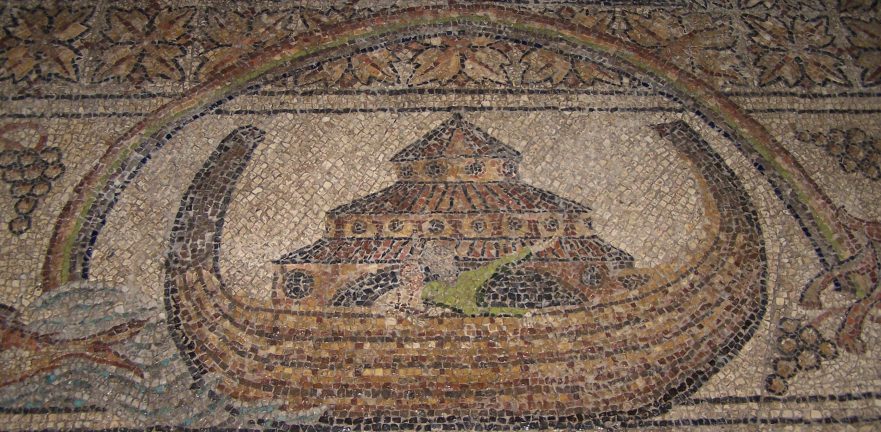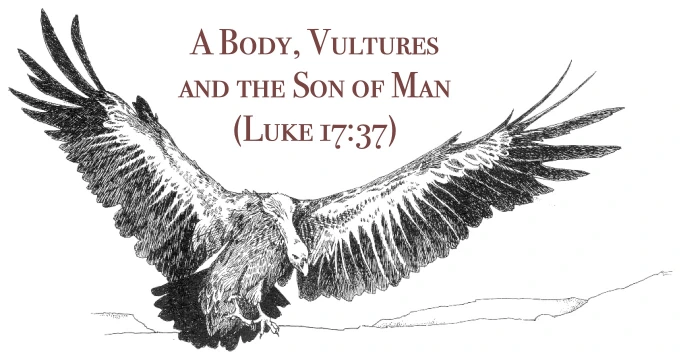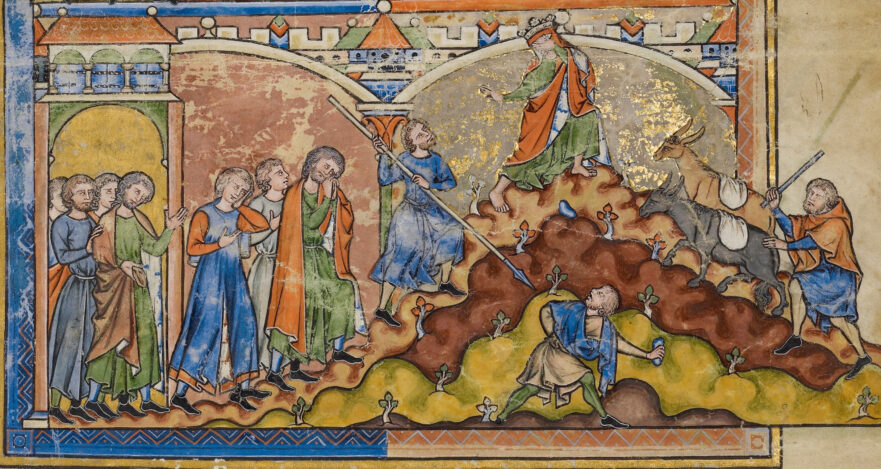A householder might be surprised by a thief, but those who know the Son of Man is coming need not be caught unawares.
Waiting Maidens Parable

In the Waiting Maidens parable Jesus warned his listeners not to behave like the foolish maidens who forgot to bring oil for their torches.
The Sin Against the Spirit: Matt. 12:31-32; Mark 3:28-29; Luke 12:10

Jesus’ saying about the sin against the Holy Spirit belongs to developing Jewish ideas regarding the gradation of sin and punishment. It also reflects his high self-awareness.
Son of Man’s Coming

Son of Man’s Coming describes the cessation of the times of the Gentiles and the ultimate vindication of Israel in terms of the apocalyptic image of “one like a son of man.”
Days of the Son of Man

In Jesus’ saying, the Son of Man does not function as the agent of destruction, any more than Noah did in the time of the flood or Lot did in the last days of Sodom and Gomorrah.
Sign-Seeking Generation

What was “the sign of Jonah”? This LOY segment offers a new and surprising answer.
Darnel Among the Wheat Parable

Is the Darnel Among the Wheat parable an allegory about eschatological events, or a lesson about God’s character?
The Messianic Consciousness of Jesus: Lesson 10

In Lesson Ten of The Messianic Consciousness of Jesus series, Dr. Robert L. Lindsey discusses “Son of Man” as a messianic title from Daniel 7:13 in the saying, “The Son of Man came eating and drinking, and they say, ‘Here is a glutton and a drunkard, a friend of tax collectors and sinners’” (Matt. 11:19 // Luke 7:34). Lindsey also discusses the story of Zacchaeus (Luke 19:1-10) in which the title “Son of Man” appears.
Not Everyone Can Be Yeshua’s Disciple

When three eager prospective disciples asked permission to follow Jesus, Jesus responded to each of them with a riddle. Why would God allow Jesus and his followers to sleep on the ground when he provides safe places even for the animals to sleep? How can the dead bury a corpse? Why would a disciple set his hand to a plow when Elisha had given up plowing in order to follow Elijah? These riddles would have to be puzzled over before their meaning was fully understood. But each of the riddles were ominous, and it appears that each of the three prospective disciples reconsidered his desire to join Jesus.
The Hebrew Life of Jesus

Despite the popularity of the modern suggestion that the Synoptic Gospels are the end result of several decades of oral transmission, the internal evidence indicates that this is not the case. Dozens of pericopae in Matthew and Luke translate to Hebrew so easily and so idiomatically that we must conclude that the Synoptic Gospels are the result of literary transmission.
From Luke to Mark to Matthew: A Discussion of the Sources of Markan “Pick-ups” and the Use of a Basic Non-canonical Source by All the Synoptists

The first article I wrote on the interrelationships of Matthew, Mark and Luke to each other and to other canonical and non-canonical sources appeared in the journal Novum Testamentum. With further research, however, I refined my hypothesis.
Jesus’ Place in First-century Judaism and His Influence on Christian Doctrine

The main aims of this contribution are, first, to show what Jesus’ place was among the various trends of the Judaism of his time and, second, to estimate the impact on Christianity of his teachings and of his life and death.
The Times of the Gentiles and the Redemption of Jerusalem

In this article David Flusser applies the methods of the Jerusalem School of Synoptic Research and the insights of Robert Lindsey’s solution to the Synoptic Problem to Jesus’ prophecy concerning the destruction and liberation of Jerusalem.
A Body, Vultures and the Son of Man (Luke 17:37)

“Wheresoever the body is, thither will the eagles be gathered together” (Luke 17:37; KJV), is certainly one of the most enigmatic of Jesus’ sayings.
“Son of Man”: Jesus’ Most Important Title

There is a common thread uniting the views of those who think that Jesus signaled Daniel 7 by using the Aramaic bar enash in the middle of Hebrew speech. Anyone who holds this view must assume that Jesus spoke or taught in Hebrew much of the time. That Jesus used Hebrew a significant amount of the time is a sociolinguistic conclusion that has a growing number of supporters in New Testament scholarship, but one that is still a minority opinion.




